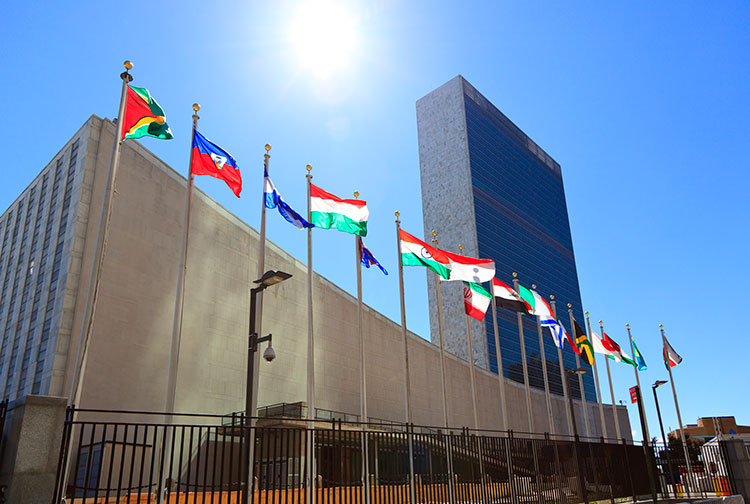
The topic of responsible and sustainable animal agriculture has received a lot of attention in recent years, but these concepts are nothing new to the American farmer. For generations, farmers and ranchers across the country have raised animals not only in an ethical manner but also in an environmentally sound and sustainable way. Because of this due diligence, farmers and ranchers have a great story to tell when it comes to sustainability conversations.
The sustainability of our food system has been especially highlighted this year as the world prepares for the United Nations Food Systems Summit (FSS). The main event is not until September, but the Pre-Summit takes place July 26 to 28 in Rome, Italy. If you haven’t heard of FSS or aren’t sure what it is, the official website describes it as “a global initiative led by United Nations Secretary-General Antonio Guterres to help inspire a decade of action to achieve the 2030 Sustainable Development Goals.” These goals include zero hunger, good health and well-being, responsible consumption and production, and climate action, to name a few.
The United Nations has been on the hunt for “game-changing” solutions to food system issues. The U.S. animal agriculture community has been actively submitting solutions that are already being done here, including:
• The U.S. Net Zero Initiative, an industry-wide effort to accelerate voluntary action on farm to reduce environmental impacts by making sustainable practices and technologies more accessible and affordable to U.S. dairy farms of all sizes and geographies.
• The Dairy Sustainability Framework that enables the dairy sector to take a holistic approach to sustainability.
• The National Dairy FARM Program, an industry-wide, on-farm social responsibility program that provides assurances that U.S. dairy farmers are global leaders in animal care, antibiotic stewardship, biosecurity, environmental stewardship, and workforce development as part of a One Health approach.
Recently, the Animal Agriculture Alliance hosted a webinar for Animal Ag Allies participants providing an overview of the FSS and how farmers, ranchers, and practicing veterinarians can get involved. Tara Vander Dussen, a dairy farmer and environmental scientist known on social media as New Mexico Milkmaid, shared her experience with FSS engagement.
Tara noted that the U.S. animal agriculture community is a leader in environmental stewardship efforts and has made tremendous progress to reduce its impact. However, she added, “It's a global system, so it doesn’t matter how great the U.S. is if the rest of the globe’s dairy numbers aren’t there as far as sustainability.”
She said one of the greatest things about being involved in sustainability and food system dialogues on the global scale is having the opportunity to share with other countries what’s being done in the U.S. to further advance environmental stewardship practices. “Why don’t we look at what we’re doing here in the United States with dairy that’s working . . . and let’s use that to then continue discussions in other areas about how we can help farmers in other places get to where the United States is at.”
The animal agriculture community often feels like it’s playing defense in conversations like sustainability, so it’s no surprise that our knee-jerk reaction is to share all of the improvements we’ve made in this area over time. Tara cautioned, though, that only looking at accomplishments and not addressing challenges will not present “game-changing” solutions or help us reach specific goals.
When it comes to engaging in sustainability conversations and the FSS, she recommended looking for any opportunity to come to the table and make the voice of farmers and ranchers heard. She stressed that more boots-on-the-ground voices were needed in the dialogue. Social media provides an easy way to get involved in the conversation by using the official FSS hashtags #FoodSystems and #UNFSS2021. The Animal Agriculture Alliance has a catalogue of ready-to-share graphics about the FSS available on our website.
Conversations about the sustainability of our food system are not going away. We need every voice to speak up about this issue to have the most beneficial impact on the animal agriculture community. What are you waiting for?

Emily Solis is the communications specialist at the Animal Agriculture Alliance. In her role, she works to execute the Alliance’s issues management and communications strategy.








